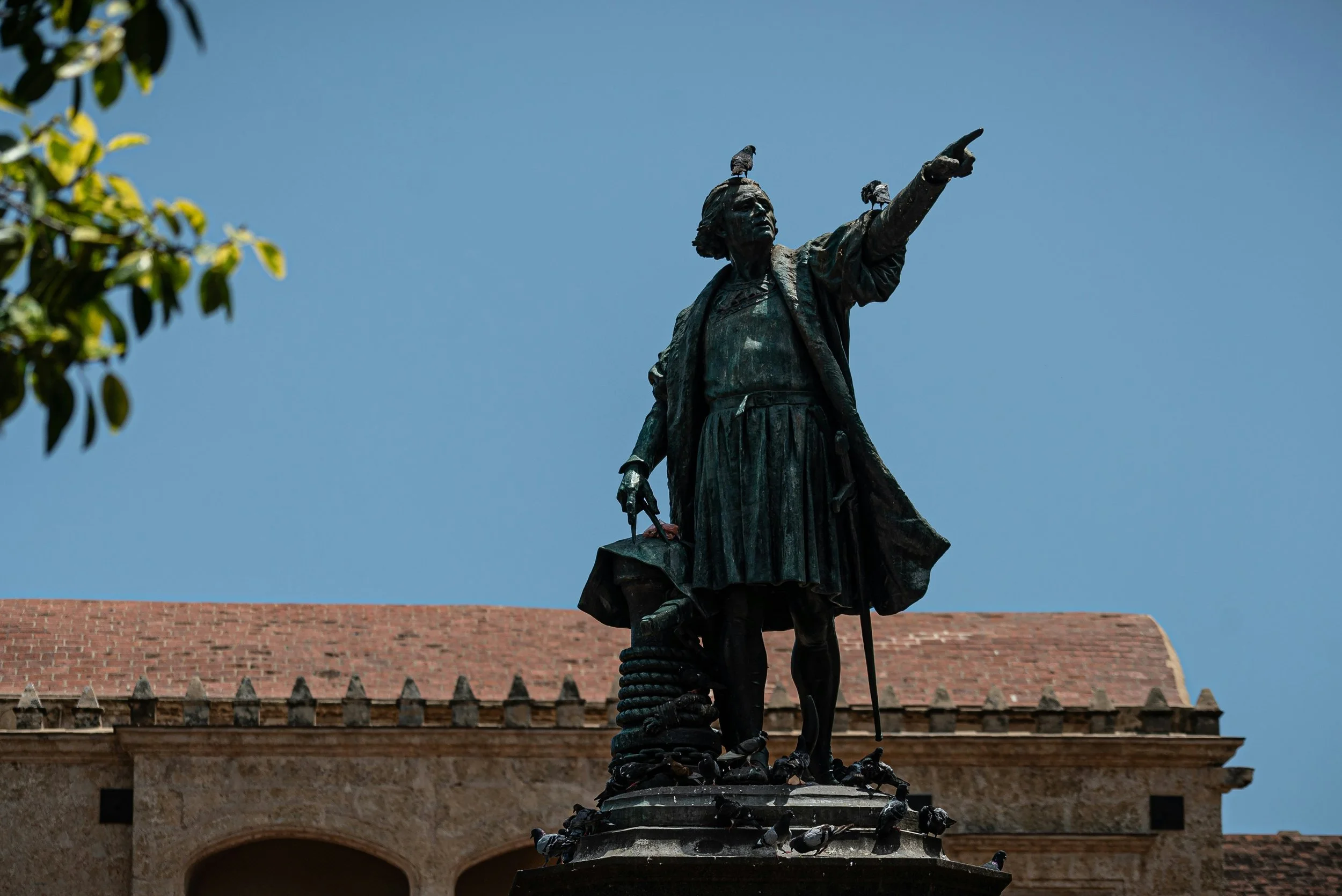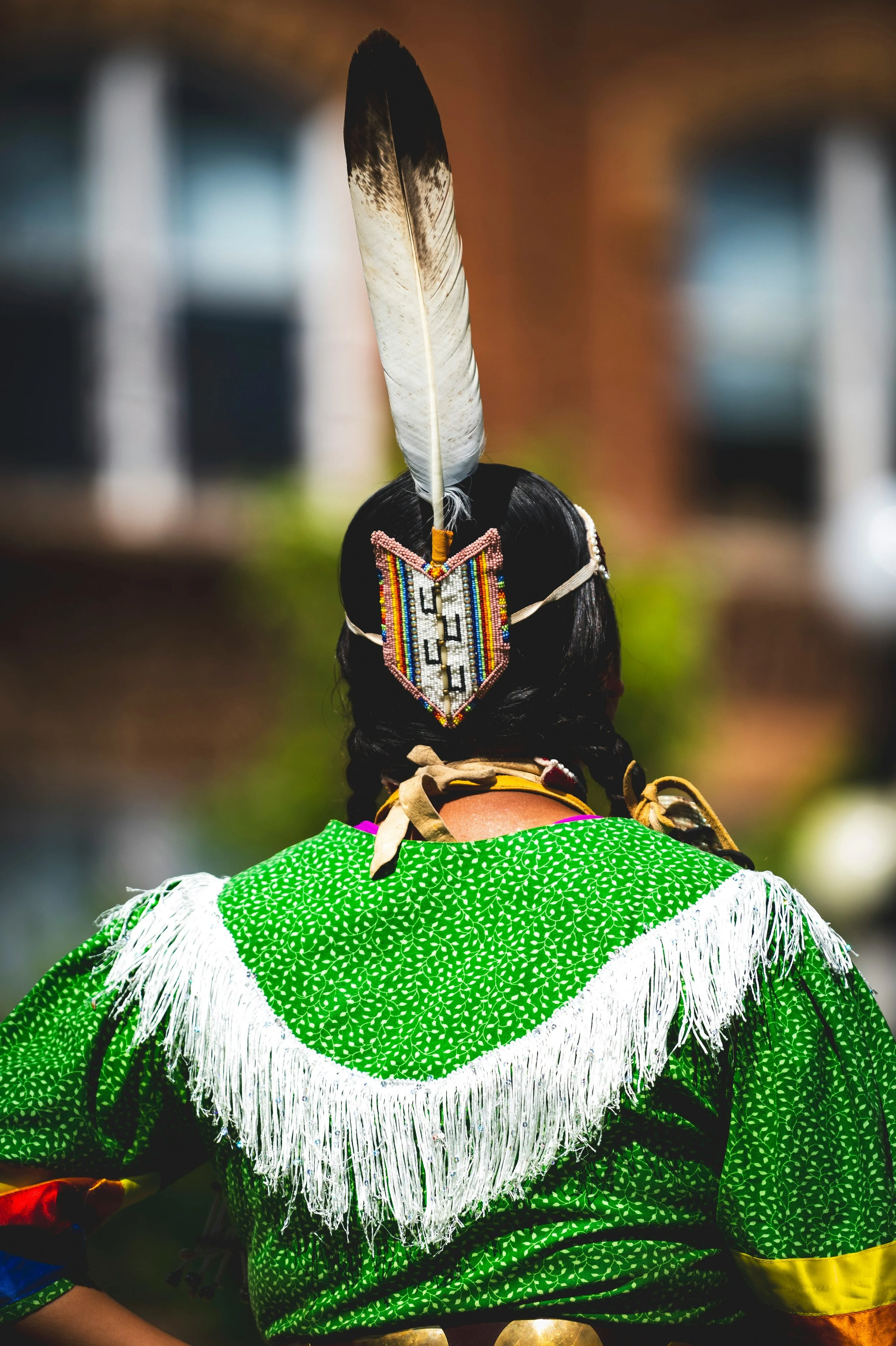Why History Told Accurately Matters
Photo by Kevin Olson
Christopher Columbus, once regarded as a towering symbol of American heroism, is now widely recognized as a far more complicated and problematic figure. For generations, he was celebrated in the United States as the brave explorer who "discovered" America, his story woven into the fabric of national identity. However, this narrative conveniently set aside the brutal realities of colonization, disease, and devastation that followed his arrival. As more people confront the historical truths surrounding Columbus’s legacy, an important shift has begun to take place. Many are now rejecting the myths and choosing to honor Indigenous Peoples’ Day instead of Columbus Day, acknowledging the ongoing harm his legacy represents.
But beyond correcting the historical record, this shift towards embracing a more truthful narrative has a profound impact on our collective mental health. As a therapist who acknowledges historical and cultural contexts in my work with clients, I’ve seen firsthand how untruthful or incomplete narratives can perpetuate harm. The stories we tell ourselves, and the stories that society tells us, shape our sense of identity, belonging, and mental well-being. Inaccurate or one-sided histories, like the myth of Columbus, can obscure the trauma and marginalization of entire communities, perpetuating cycles of denial and invalidation. The push to dismantle the myth of Columbus is about more than just setting the record straight—it’s about creating a healthier, more just society.
Photo by redcharlie
When we cling to false narratives, like the one that portrays Columbus as a benevolent discoverer, we contribute to a collective denial of the harm caused by colonization. This denial has far-reaching effects, not only on Indigenous communities who continue to suffer from the legacies of violence, but on society as a whole. When we fail to confront the past, we remain stuck in patterns of ignorance and harm, and this disconnect between myth and reality can have real mental health consequences. Imagine the impact on Indigenous peoples who, for decades, were forced to witness the glorification of a figure who represents genocide and erasure of their ancestors. The psychological toll of constantly seeing their history misrepresented, dismissed, or ignored is significant and lasting.
As therapists in this practice, we often work with individuals and families who have experienced historical trauma, whether related to their cultural identity, intergenerational trauma, or other complex experiences. When we discuss healing, we talk about the importance of validation—about recognizing the truth of someone’s experience and not dismissing it. This same principle applies on a societal level. Healing, both individually and collectively, requires us to acknowledge painful truths rather than perpetuating myths that serve to protect certain power structures. By shifting the focus from Columbus to Indigenous Peoples’ Day, we open up a space to honor the experiences and resilience of Indigenous communities. We begin to tell a more complete and truthful story, which is essential for healing and reconciliation.
Photo by Gabriela Custódio da Silva
Staying closely aligned with narratives of truth in society is crucial to our mental health because truth fosters trust. If we can trust that our collective histories are being told with honesty, we are more likely to feel safe, respected, and seen. For individuals from marginalized or historically oppressed communities, this is particularly important. When society continues to perpetuate false or incomplete narratives, it reinforces the marginalization and silencing of their voices. Acknowledging historical truths allows us to validate their experiences and create a more inclusive society where all people feel valued and recognized.
In therapeutic work, we often address the ways in which historical and systemic issues impact mental health on a personal level. Clients come to me with struggles related to identity, generational trauma, and the ways their communities have been treated throughout history. These challenges don’t exist in a vacuum; they are deeply influenced by the narratives that dominate our society. For example, clients from Indigenous backgrounds might wrestle with feelings of erasure or invisibility when they see Columbus celebrated as a hero. This can exacerbate feelings of alienation, depression, and anxiety. On the other hand, when we acknowledge historical harms and begin to repair these narratives, we validate their experiences, which is a crucial step toward healing.
Photo by Jon Sailer
By celebrating Indigenous Peoples’ Day, we not only honor the history and culture of Native peoples, but we also create a space where the harmful legacy of colonization can be discussed and addressed. This is vital for all of us. Just as individuals need to confront difficult truths in therapy in order to heal and grow, so too must societies confront their historical truths in order to move forward in a healthier, more just way. For too long, the myth of Columbus has served to obscure the violence and oppression that Indigenous peoples have faced. Correcting this narrative is not just about history; it’s about mental health, justice, and the future we want to create.
As we move towards embracing narratives rooted in truth, we create an environment where healing can happen, both for those directly impacted by historical injustices and for society as a whole. We begin to dismantle systems of denial and invisibility, and we open up pathways for reconciliation and connection. This shift is not just about replacing one holiday with another; it’s about rewriting the stories we tell ourselves, and making space for everyone’s history to be told with honesty and integrity. For our collective mental health, this work is not only important—it’s essential.
Written by Tanisha Christie, LCSW (she/her)
Tanisha Christie, LCSW (she/her) is the Founder and Practice Director who champions the liberation of individuals through the acknowledgement and affirmation of their stories. With a collaborative, holistic, and directive approach, Tanisha guides clients toward healing. Her extensive experience includes roles at Mount Sinai Hospital, the Ackerman Institute for the family and private practices, offering specialized expertise in polyamorous and couple relationships, executive coaching, and clinical supervision.





